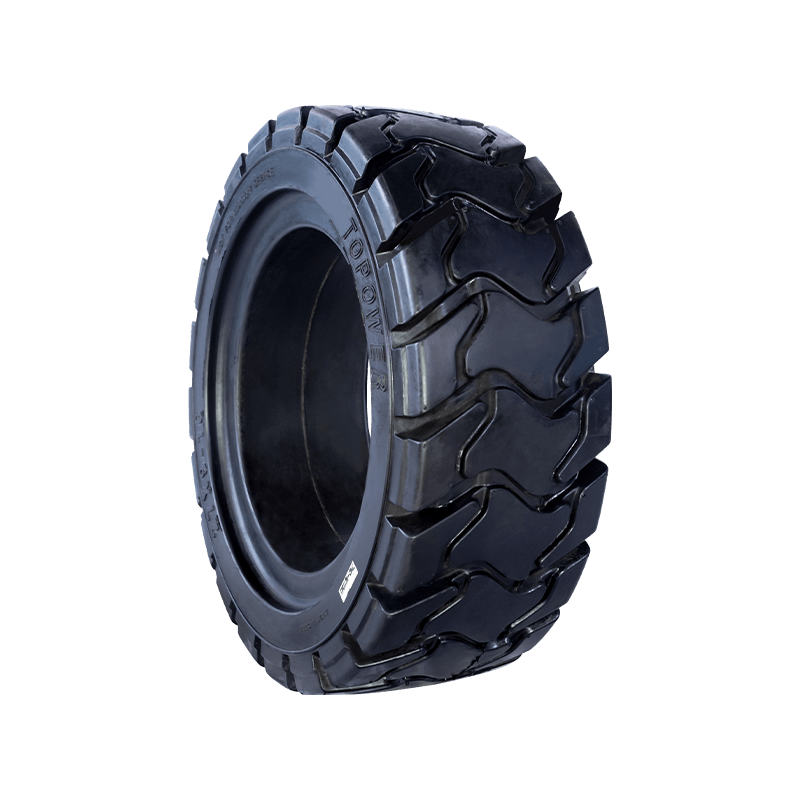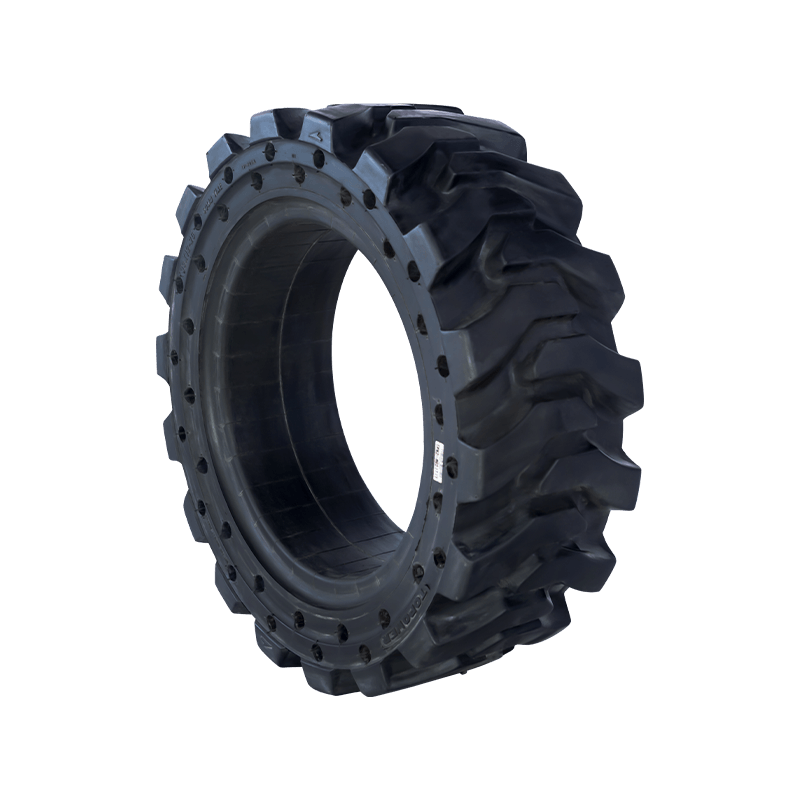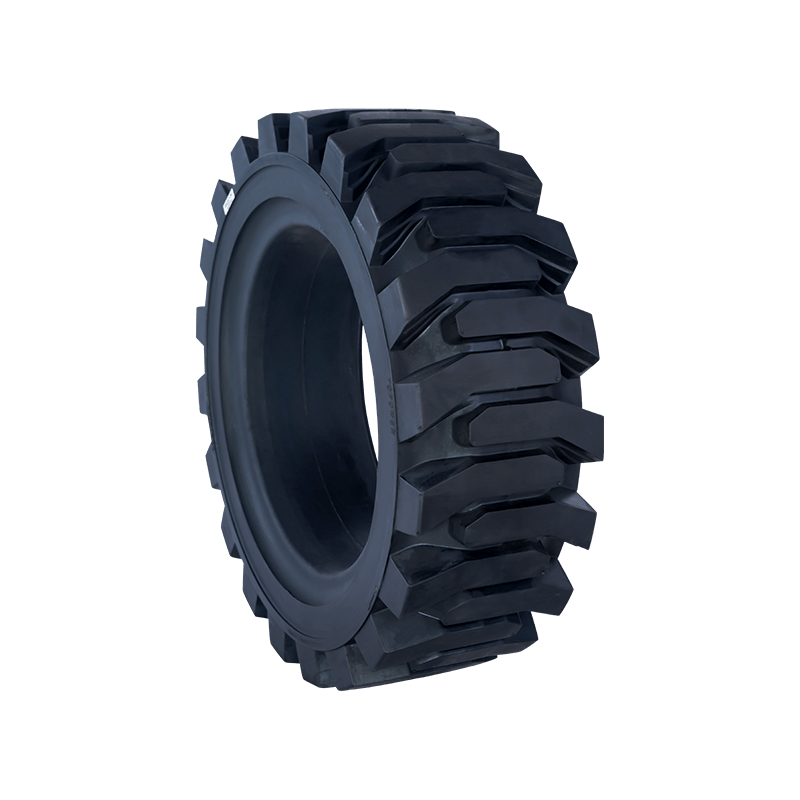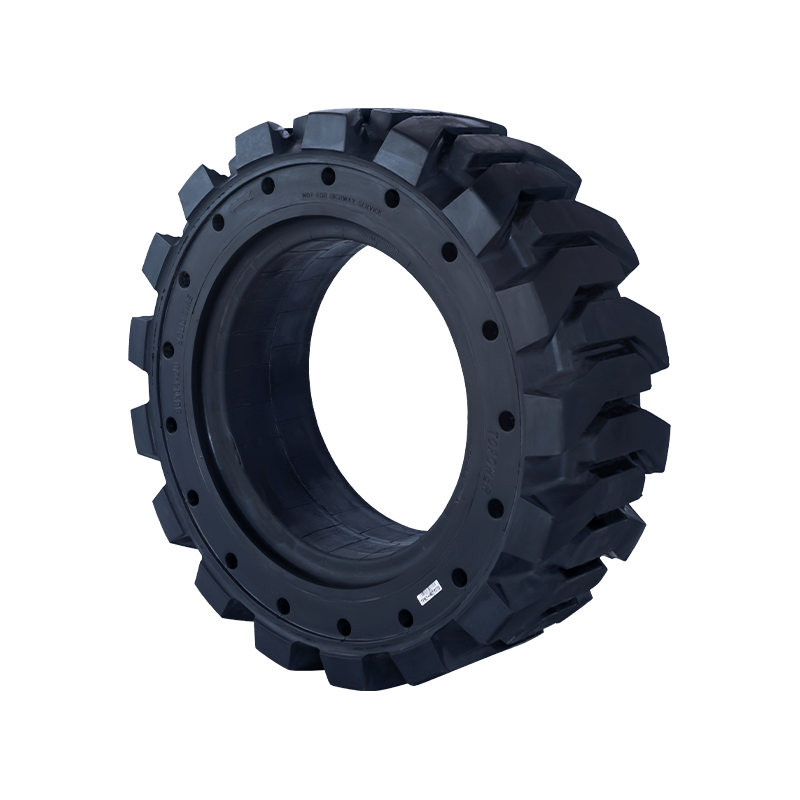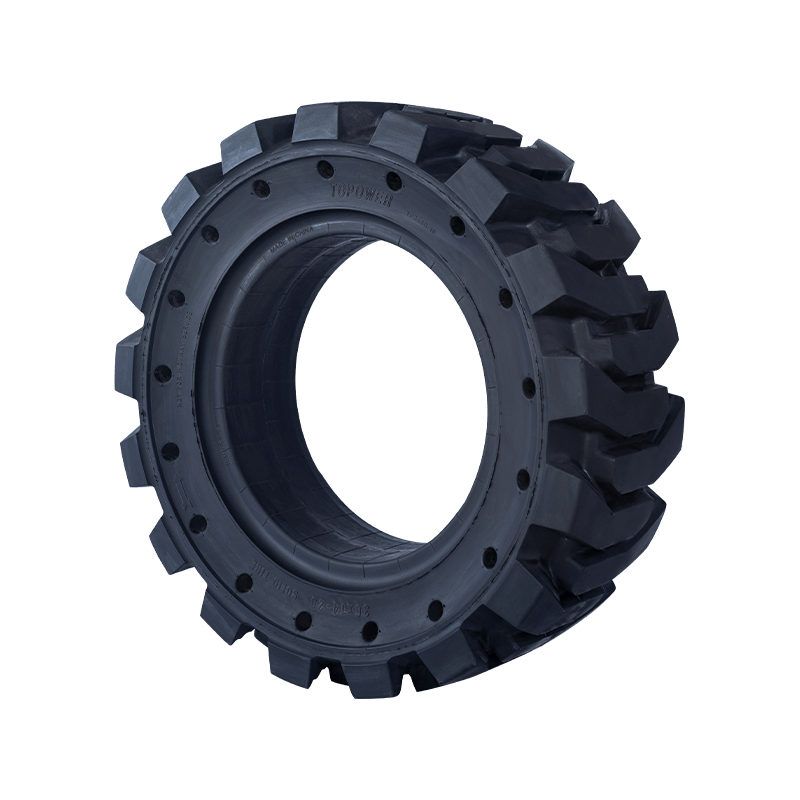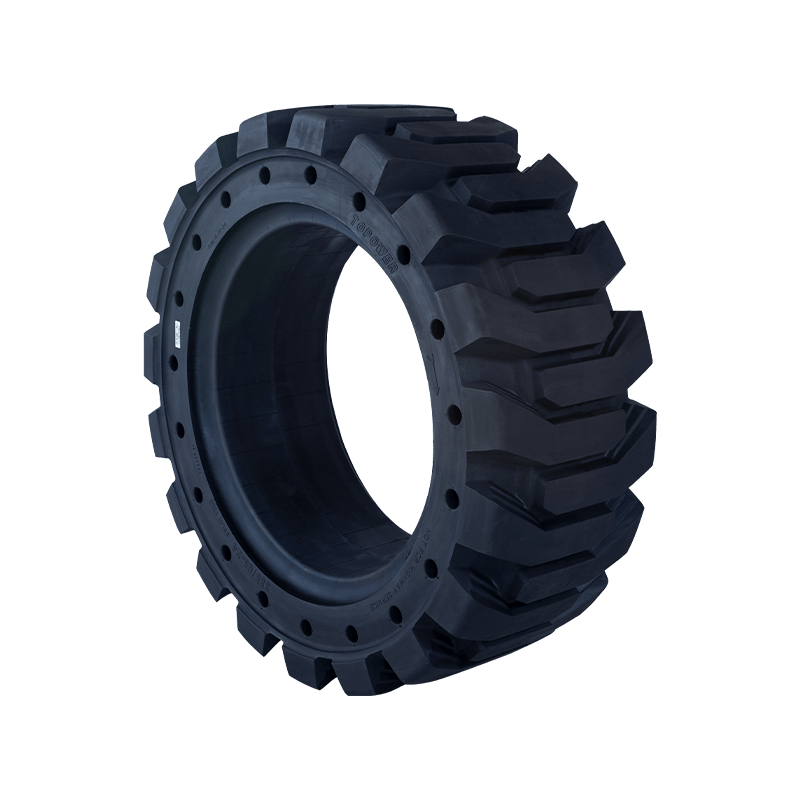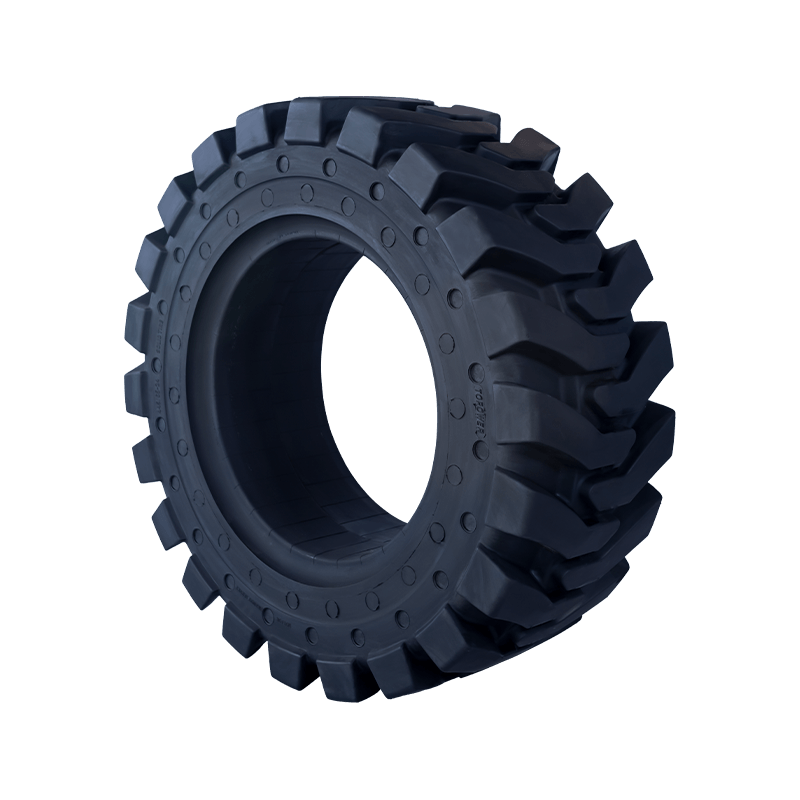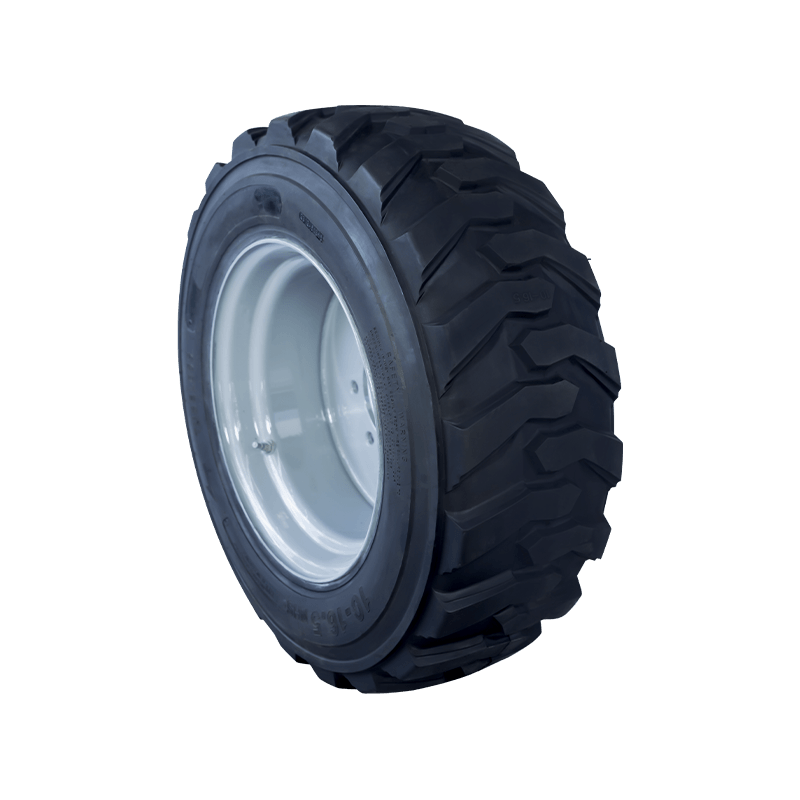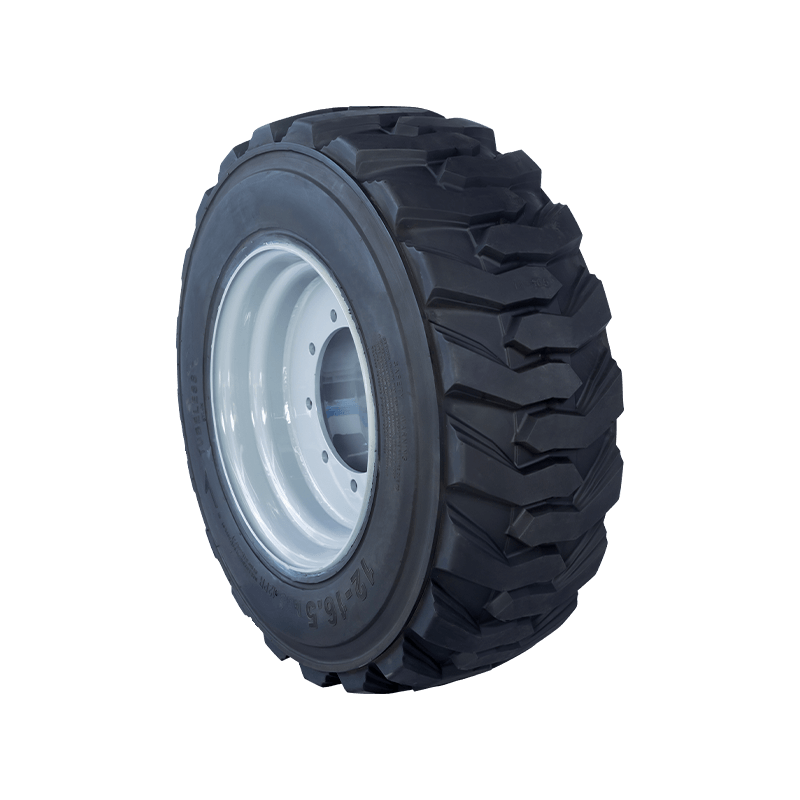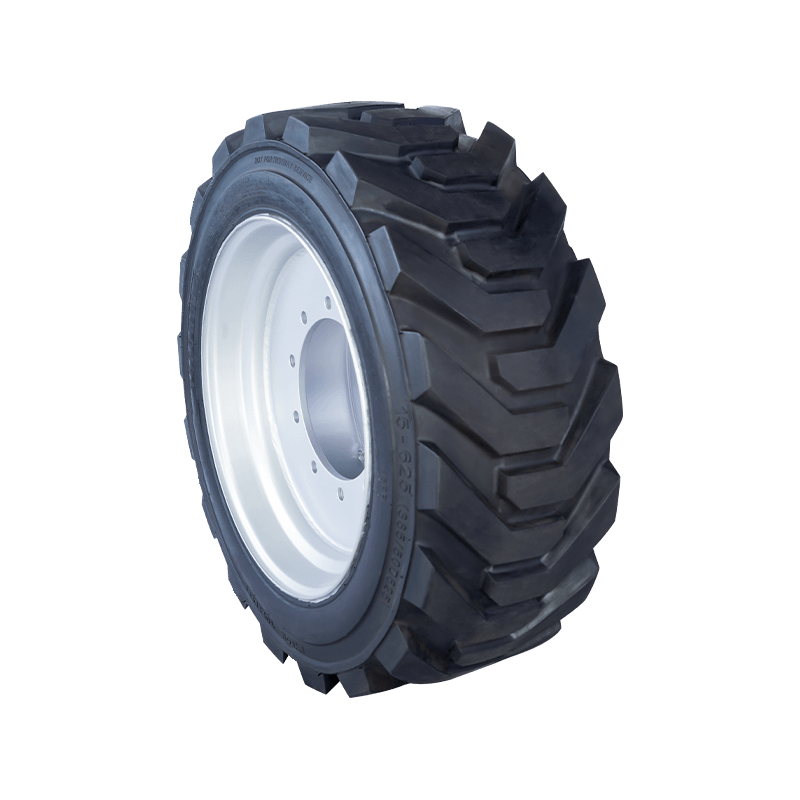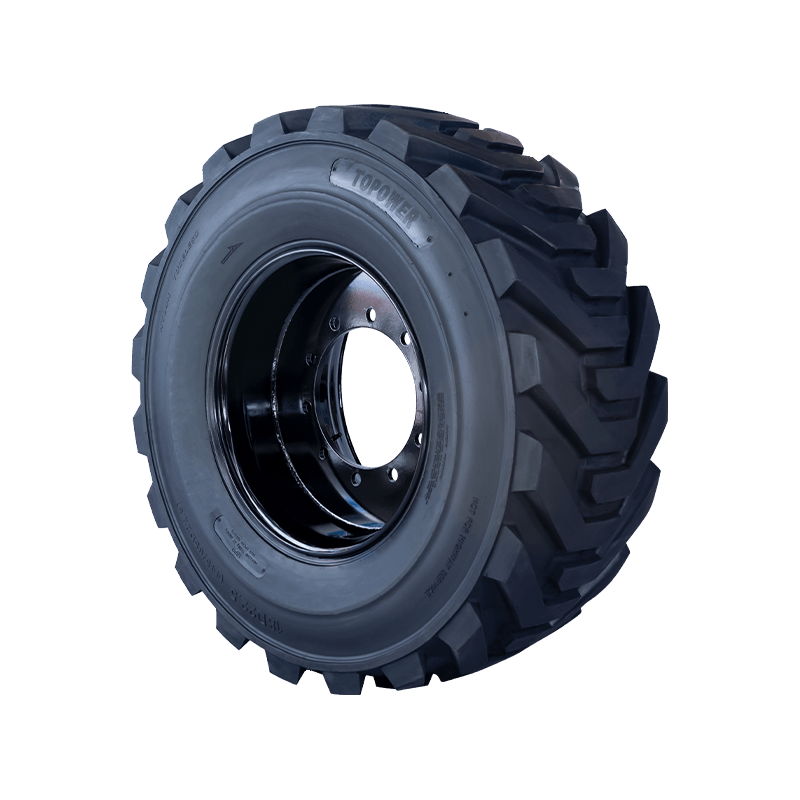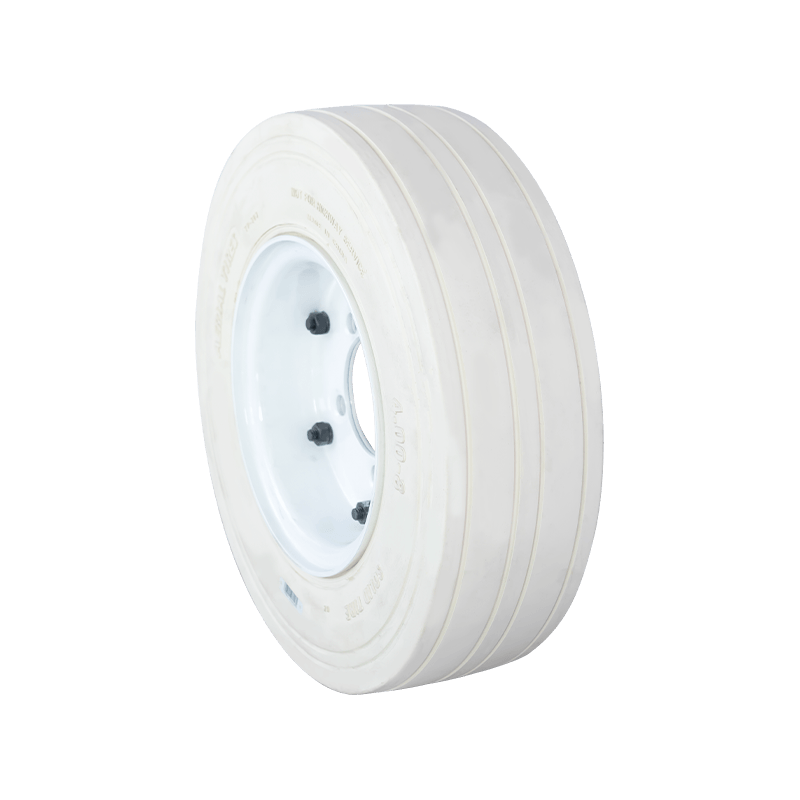Forklift solid tires are designed with a precise rim and tire integration to ensure that they can withstand high-intensity workloads. Compared with ordinary pneumatic tires, solid tires have a more sturdy design structure and are not easy to deform or damage, so they can carry larger weight loads. Especially when heavy forklifts are operating, the load capacity of the tire directly affects the stability and work efficiency of the forklift. This strong load capacity ensures that the forklift can still maintain smooth operation when transporting heavy objects, without the risk of excessive compression or rupture of the tire, greatly improving the safety of the operation.
Forklift solid tires use specially formulated black wear-resistant rubber. This rubber material has been carefully formulated to effectively deal with wear problems in high-intensity operations. During long-term use, especially in high-frequency working environments such as warehousing and logistics, tires will face repeated friction and ground pressure. Traditional pneumatic tires are prone to uneven wear or loss of grip, but the wear resistance of forklift solid tires significantly extends their service life, reduces the frequency of tire replacement, and thus reduces operating costs.
One of the unique advantages of forklift solid tires is their explosion-proof performance. Unlike traditional pneumatic tires, solid tires are not filled with gas, which means that even if the tire is punctured or penetrated by external sharp objects, it will not burst. A burst not only interrupts the operation of the forklift, but also threatens the safety of the working environment. This design of solid tires eliminates the safety hazards caused by bursts, making forklifts more reliable when working in harsh environments.
The surface of forklift solid tires has been specially treated to have strong cut resistance. When working on rough or uneven ground, forklift tires often come into contact with sharp stones, debris or other objects that may cause tire damage. Traditional pneumatic tires are prone to cuts or cuts under the action of these sharp objects, causing tire damage or even unusable. The cut resistance of forklift solid tires can effectively avoid this problem, so that even when working in very complex terrain, the tires can maintain long-term stable operation, are not easily damaged by the external environment, and reduce the frequency of downtime maintenance due to tire damage.
The design of forklift solid tires focuses on grip, and even on slippery or uneven ground, it can maintain good traction to ensure stable operation of the forklift and avoid sliding or loss of control. Compared with traditional pneumatic tires, forklift solid tires do not require inflation and daily maintenance, saving time for manual inspection and repair, and reducing subsequent maintenance costs. In addition to durability, forklift solid tires are also environmentally friendly and do not leave any tire marks. They are suitable for places with high requirements on the ground, such as clean warehouses or fine processing workshops.
Forklift solid tires are widely used in various types of warehouses, logistics centers, production workshops and other high-intensity working environments. Whether it is high-load operation, harsh ground conditions, or long-term continuous operation, forklift solid tires can provide reliable support to help improve the efficiency and safety of forklifts.

 English
English русский
русский Español
Español عربى
عربى


